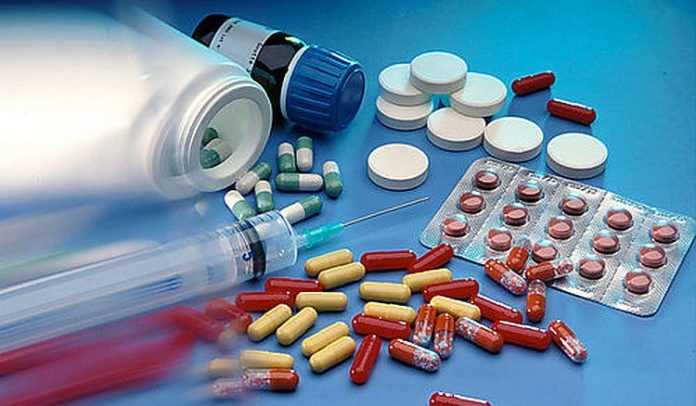(Friends: As you know, TheSportsExaminer.com is a free site, but we still have expenses, for hosting and technical support. Our semi-annual bill has arrived, and if you value what you read here, perhaps you can donate to help with the costs. Thank you.)
While the world suffers with the continued impact of COVID-19, the tug-of-war over doping – especially Russian doping – has hardly missed a beat. In Moscow, at the World Athletics office in Monaco and at the World Anti-Doping Agency headquarters in Montreal, it’s already a hot summer.
● The Russia Athletics Federation (RusAF) was due to pay a $5 million fine to World Athletics today (1 July) in order to allow some of its athletes to be able to compete as neutrals, but has asked for an indefinite delay.
The Russian news service TASS reported RusAF chief Yevgeny Yurchenko’s comments:
“Our appeals, which were sent to World Athletics, remained unanswered unfortunately.
“This is why we are addressing our appeal today not only to the chief of World Athletics, Sebastian Coe, but to the World Athletics Council as well, in our open letter on behalf of all RusAF presidium members.”
The sports.ru site reported the Russian Sports Minister, Oleg Matytsin, also chimed in:
“The issue is very important for the ministry, and for the entire sports community, the athletics community, and the world community. Unfortunately, the VFLA [RusAF] found itself in a very difficult situation – the current leadership bears the burden of responsibility for previous wrong steps taken by the leadership. …
“To date, the penalty has not been paid, we sent a letter on behalf of the Russian Ministry of Sports to the World Athletics [chief] Sebastian Coe, to the IOC [chief] Thomas Bach so that our athletes would not suffer in any way, so that they would not bind the sanctions imposed on the federation in any way, with sanctions on the activities of athletes – they have already actually suffered, as they have the status of neutral.
“I hope that at least this voice will be heard. As far as I know, the VFLA leadership also sent a letter requesting a deferment of this payment, explaining the very difficult economic situation around the world. I hope that the leadership of World Athletics will take this into account, especially since they themselves are in a very difficult economic situation, like the whole world community.
“It seems to me that we need to demonstrate solidarity and allow the federation to develop. Because all that VFLA does today is the fight for pure sport, a very active fight with the use of doping, educational programs, the ability to provide the training process, participation in competitions.”
There is no chance that World Athletics will do anything other than it has already done: ban Russian athletes from competing. The federation’s lengthy suspension of RusAF dates back to 2015 and each time there appears to be some movement forward, something new happens. The latest was a complete falsification – now admitted – of documents to cover up “whereabouts” failures of 2018 World Indoor High Jump Champion Danil Lysenko, in late 2018.
The World Athletics Russia Task Force report from March of this year noted “this is another gross betrayal of trust that compounds the harm done by the previous regime” and concluded that if there are any further such shenanigans, “Council is very likely to propose to member federations that RusAF be permanently expelled from membership of World Athletics.”
● While Russia is trying to get its track & field athletes eligible, the World Anti-Doping Agency hit back at the U.S. Office of National Drug Control Policy for its 19-page report submitted on 17 June, slamming WADA as ineffective in not being tough enough on Russia and paying more attention to the U.S.
The reply looks very much like an exam paper returned with the teacher’s red markings all through it, and took a 19-page report into a 46-page lecture on WADA’s history and actual procedures.
But having the whole document and the WADA reply allows the quarrel to be summarized on a few points:
The U.S. “complaints” are essentially that WADA was not tough enough on Russia, that the U.S. doesn’t have enough power or representation for its $2.71 million in dues for 2020 and that sports organizations have too much power and representation.
It’s worth noting that the annual WADA budget right now is a paltry $37.4 million, of which the International Olympic Committee pays half (50%). The laughable aspect of the U.S. report is that it demands:
“WADA’s governance must be free from undue influence by sports organizations with a direct financial interest in WADA decisions”
and in the next paragraph, requires:
“Representation on the WADA [Foundation Board] and WADA [Executive Committee] should be proportionate to financial contributions, and likewise a proportionate number of WADA standing committee members should be from the United States.”
Really?
The WADA reply highlights some bad facts for the U.S. report, most notably that Canada is the largest national government contributor to WADA in 2019 at $2.86 million when counting all contributions, with the U.S. second at $2.61 million.
Further, the formula for contributions was decided according to a formula agreed to by the U.S. and other 43 other governments in the Americas region, back in 2008. According to the agreement, “the U.S. ‘agrees and commits to paying 50% of the America’s region’s 29% of WADA dues.’” Oops.
The WADA reply also noted that the U.S. has 11 individuals in place on the agency’s Board and committees, more than any other country. What’s more, as to the lack of an American on the current WADA Executive Committee:
“[I]n February 2020, nations of the Americas met in Ecuador for their annual inter-governmental meeting to discuss mutual anti-doping interests; including, the important topic of representation on WADA’s Board and ExCo for the 2-year period following the meeting. To our knowledge, the U.S. government did not attend that meeting to seek a seat on the WADA ExCo”
and
“Unlike previous years, for 2020, the U.S. government did not submit any nominations for U.S. members or Chairs to any Standing Committees, including the Athlete Committee.”
Oh, boy.
The reply also emphasized that if governance positions were based on contributions, “it would eliminate the potential of the majority of nations from ever holding a seat on the WADA ExCo or Board.”
WADA President Witold Banka (POL), himself a former international-class 400 m runner, pummeled U.S. ONDCP Director James Carroll in a cover letter:
“It is therefore with great disappointment that I read the ONDCP Report of 17 June to the U.S. Congress, regarding WADA Reform Efforts. Given that, during our 12 June telephone meeting, we discussed a renewed spirit of cooperation, I would have expected your office to have consulted us on the Report; or, at the very least, to have verified the factual veracity of the allegations being made against WADA. Instead, in the days before publication, you informed us of the impending Report and asked us to verify three paragraphs by a certain deadline; and, when we did so in good faith, you chose not to incorporate our clarifications. As the saying goes, ‘why let the truth get in the way of a good story’?”
And then came a final blow:
“One obvious way for the U.S. government to contribute more to the fight against doping in sport may well lie in increased efforts to protect young Americans that practice sport in an environment where the rules fall short of those established by WADA” which would include most college and professional sports in the U.S.
The only area on which both agree is that athlete representation must be increased and, in fact, WADA has asked its Athletes Committee to come up with the right formula.
Where these two organizations should be cooperating, they are now feuding. As U.S. Anti-Doping Agency head Travis Tygart praised the U.S. ONDCP report, one wonders who is driving the agenda here … and why?
Rich Perelman
Editor
You can receive our exclusive TSX Report by e-mail by clicking here. You can also refer a friend by clicking here.

























